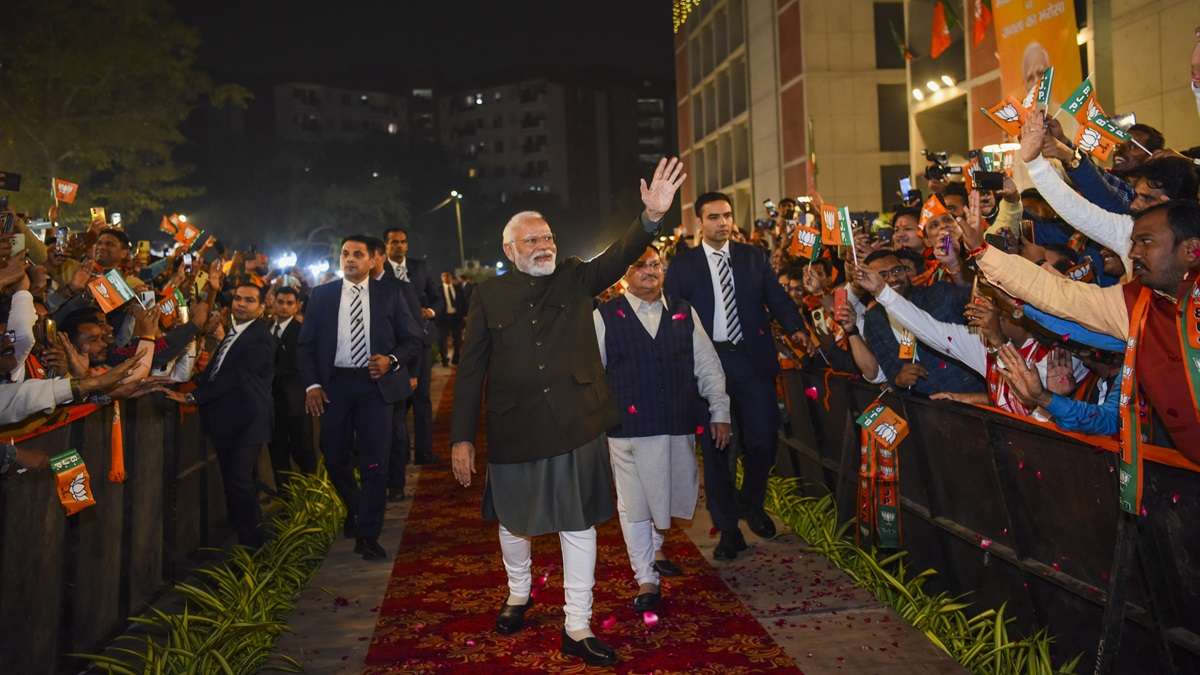
The world’s largest democracy recently held the largest election (642 million voters). Mr. Narendra Modi, who has won third term in Government, will face a number of significant challenges, ranging from economic insecurity to ethnic conflicts that undermine the nation’s social fabric. Mr Modi and his ruling party, the BJP, which has controlled India for two straight terms, were sure of a landslide win and their media and exit polls both expected a landslide Modi win. These estimates indicated that the BJP will win more than 400 of the 543 seats in the Lok Sabha, or Lower House. As is clear, none of these predictions have come true – the BJP as single party could only win 240 seats, falling short of the 272 required to form a Government. BJP made efforts to make Government by joining hands with independent candidates to make coalition Government while Mr. Modi frequently emphasizes citizens that India has developed faster than many of its competitors in recent years. However, the BJP came into Government 10 years ago pledging double-digit growth rates, which it has never accomplished.
Despite the Modi Government’s past emphasis on economic growth, some policy initiatives have been criticized for creating instability and increasing socioeconomic inequities. One such incident was the unexpected demonetization of high-value currency notes in 2016, which was intended to tackle dark money and corruption. However, the shift caused considerable upheaval, particularly among small enterprises and the informal economy. Similarly, the launch of the Goods and Services Tax (GST) in 2017 was hampered by technical faults and compliance concerns, which disproportionately impacted small enterprises and traders. These interruptions exacerbated economic uncertainty, adding to job losses and reducing investment confidence.
The Modi Government’s previous terms have also seen an increase in ethnic conflicts and sectarian division. Religious and caste-based violence has increased, the Government neglected to address underlying societal inequalities and occasionally intensified them for political benefit. The Modi administration has received significant backlash for its treatment of minorities, notably Muslims and Sikhs, with charges involving prejudice and human rights violations. Policies like the Citizenship Amendment Act (CAA) and the projected National Register of Citizens (NRC) have provoked significant outrage and anxiety among Muslim communities, who see them as exclusive and biassed. Furthermore, episodes of mob violence and lynching against Muslims have increased, with opponents blaming the government of creating an environment of impunity for offenders. The Sikh community has also raised concerns, particularly in light of the disputed agricultural rules, which many believe unfairly hurt Sikh farmers in Punjab. The government’s handling of these issues has been interpreted as part of a larger pattern of marginalizing minority communities, weakening India’s longstanding commitment to secularism and diversity.
Despite constitutional promises of equality, prejudice against caste persists in Indian culture. In fact, the Modi Government has not done enough to address these systemic disparities, putting disadvantaged people, notably Dalits and Adivasis, at a disadvantage in terms of education, employment, and social participation.
Adding more into it, ongoing farmer protests against rejected agricultural policies highlight the underlying agrarian hardship and misery of rural populations. Farmers have opposed the Modi Government’s efforts to liberalize agricultural markets, fearing that their livelihoods would be eroded and agriculture will become corporatized. The impasse underscores the gap between policy goals and ground reality, exacerbating societal dissatisfaction. Farmers launched a year-long protest in 2020 over the Government’s decision to implement unpopular agricultural policies. Thousands slept at the Capital’s gates, with scores dying from heat, cold, and COVID-19. But this year in 2024, they’re again on roads to pressurize the Government to fulfill their demands. The movement posed one of the most significant obstacles to Prime Minister Narendra Modi’s freshly established Government.
As the election results show, the voters will closely monitor the Modi Government’s reaction to these difficulties. The ruling will reflect not only economic considerations, but also the need to eliminate ethnic inequities while upholding ideals of social justice and inclusive growth. The decision will influence India’s destiny, determining whether it moves toward wealth and harmony or remains divided and discordant. Furthermore, despite all of these obstacles and failed policies, the BJP’s triumph in the general election can be attributed only for playing the “Muslim Card” to achieve victory.
